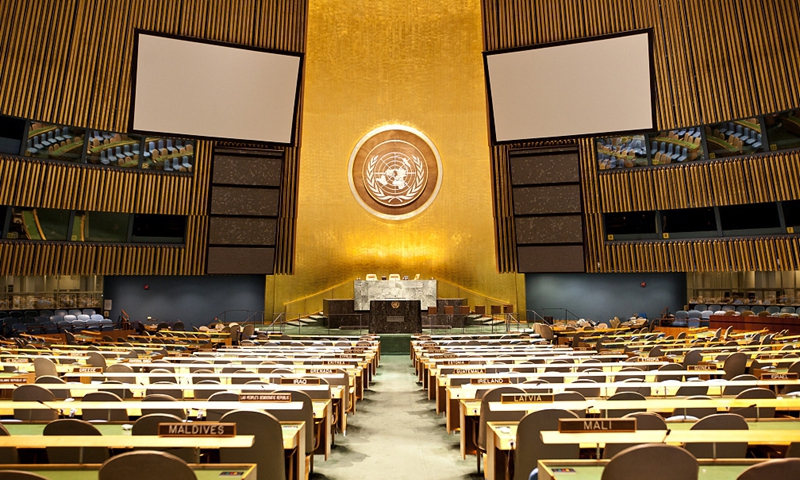
File Photo:VCG
The UN Security Council held a briefing on the COVID-19 pandemic and vaccines on Monday. Zhang Jun, China's Permanent representative to the UN, said that a scant few countries are still holding on to the Cold War mentality, drawing lines of distinction based on ideology, provoking renewed bloc confrontation, which is plunging the international community into division, and pushing the world into the quicksand of grave risks and uncertainties especially when the epidemic is not over.
Zhang said that armed with nearly all the effective tools needed to fight this pandemic, humanity is beginning to see the light at the end of the tunnel. "However, we are nowhere near the point where we can afford to be complacent and let up. Only when each and every country has subdued this common enemy of ours, can the world declare that we have prevailed."
Zhang pointed out that countries must work hard and work together to build immunological barriers. Security Council Resolution 2565 calls for increased access and affordability of vaccines in conflict areas.
China has provided a total of 2.2 billion doses of COVID-19 vaccines to more than 120 countries and international organizations and is currently providing an additional 1 billion doses to African countries, 150 million doses to ASEAN countries, and 50 million doses of free vaccines to Central Asian countries.
"Right now, it is imperative to scale up vaccine assistance and supply to leave no country behind and no one forgotten." Zhang said.
Besides, public health systems in developing countries should be strengthened. Zhang said it is necessary to expand the coverage of medical services, improve public infrastructure such as transport and power supply, and train up more medical professionals and health workers as well as better disseminate public health information to the entire population, especially the youth and children.
Zhang also said the world should inject fresh momentum into post-pandemic recovery and socio-economic development. "This is something that the international community must take very seriously. And the UN should act swiftly and take solid and effective measures to both address the current crisis and explore long-term solutions."
To address this problem, China will host a high-level meeting of the Group of Friends of the GDI in the near future.
Zhang said that countries must practice true multilateralism. During the two-year long pandemic, over 6 million people lost their precious lives. Zhang said that the lesson is profound and deserves serious reflection. "Nothing is more valuable in this world than human lives. A people-centered approach is the most important tenet that guides all our decisions."
Zhang pointed out that a scant few countries are still holding on to the Cold War mentality, drawing lines of distinction based on ideology, provoking renewed bloc confrontation, imposing unilateral sanctions without scruples, weaponizing economic interdependence, and forcing countries to choose sides.
"This is plunging the international community into division and pushing the world into the quicksand of grave risks and uncertainties. These irresponsible actions are harmful to others as they are to themselves and must be categorically rejected," Zhang said.




